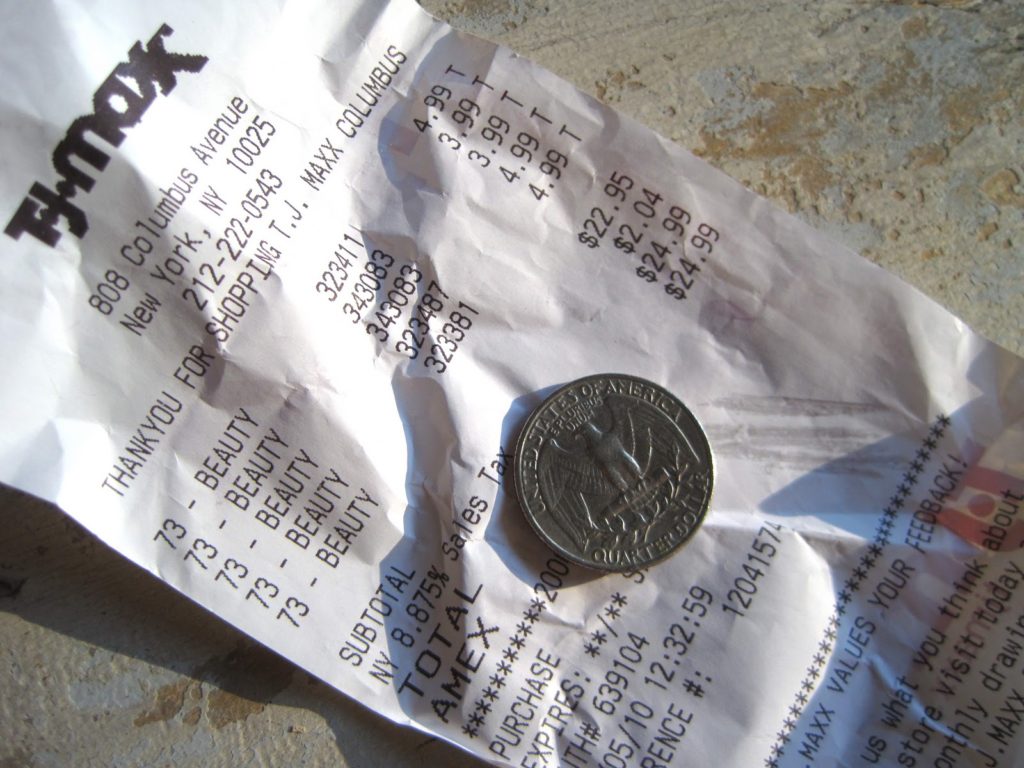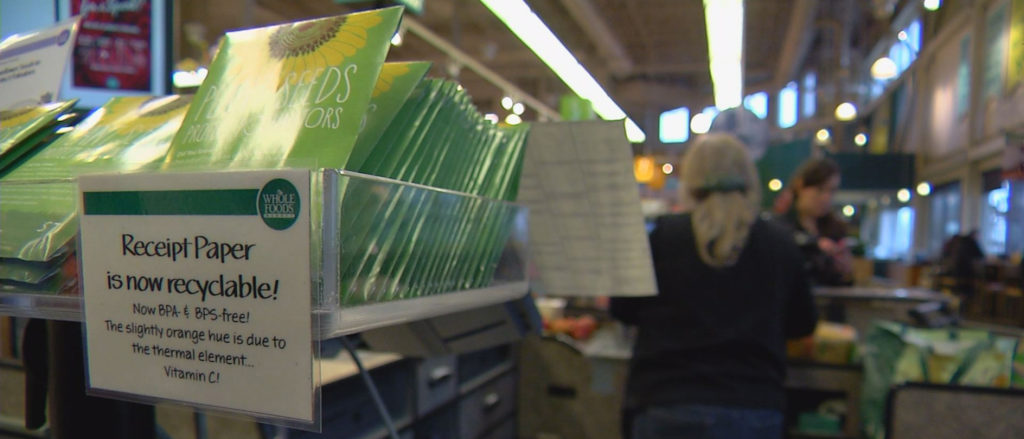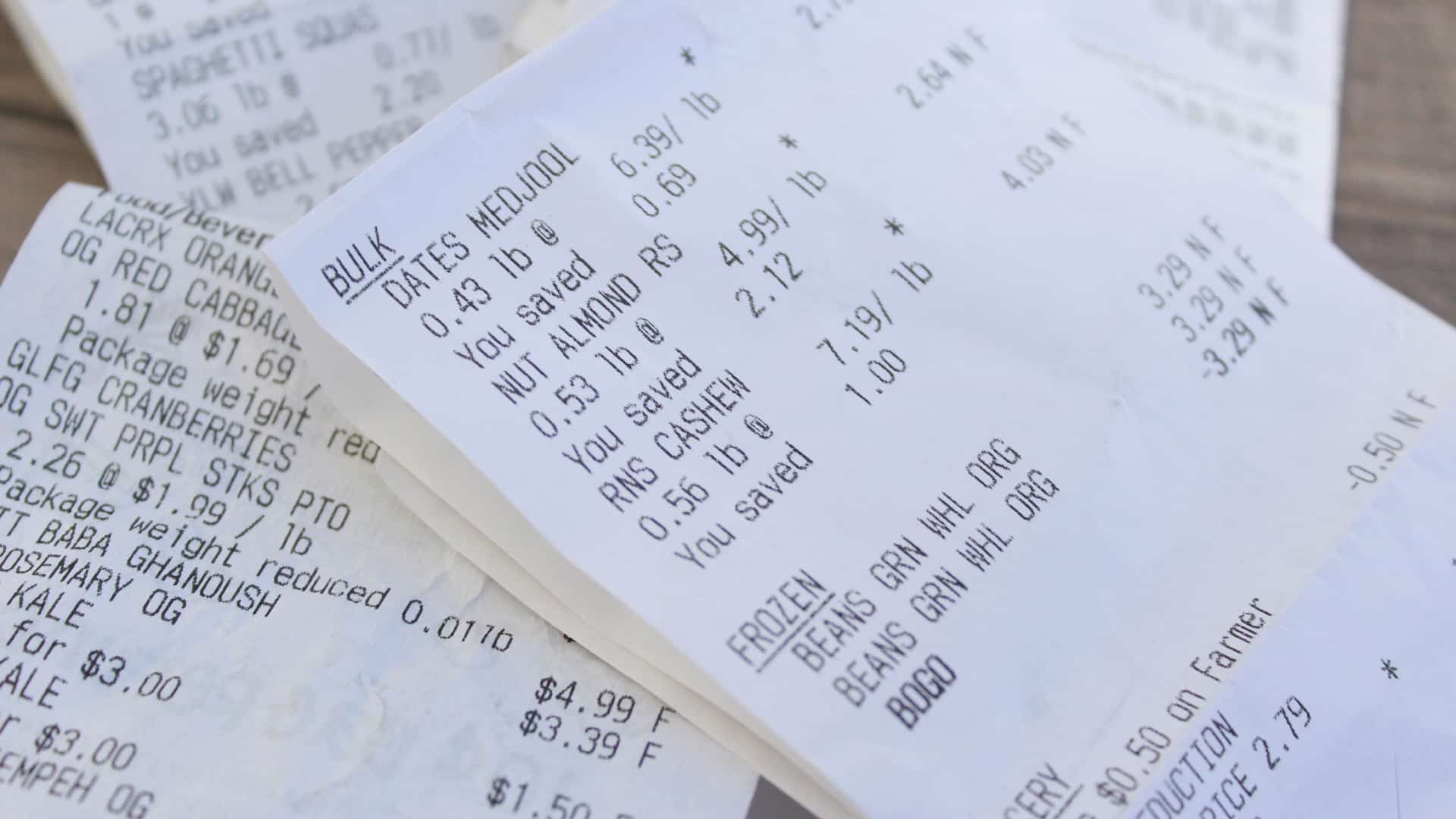Quick Tip: Avoid handling receipts.
If you’re like me then you haven’t thought much about taking a receipt, crumpling it up, and putting it in your pocket. The paper that receipt is printed on is made from thermal paper. That box from Amazon that was left at your front door? The shipping label is made from thermal paper.
I never really thought much about thermal paper until I started my silver stylus project. That project started because of an observation - I noticed that if you rubbed silver (and also, I later discovered; copper, bronze, brass, and aluminum) against either thermal paper that it would leave a mark. It's called silverpoint and I wanted to find out why this happened. What I learned about thermal paper truly surprised me.
What is Thermal Paper?
Thermal paper is a special paper that is coated with a material formulated to change color when exposed to heat. A chemical often used in that special coating is Bisphenol A (BPA) or Bisphenol S (BPS). BPA is considered an endocrine disruptor and recent research shows a strong indication that BPS is as well.

What is an Endocrine Disruptor?
Endocrine disruptors are chemicals that can interfere with endocrine (or hormone) systems at certain doses. These disruptions can cause cancerous tumors, birth defects, and other developmental disorders. Any system in the body controlled by hormones can be derailed by hormone disruptors. Specifically, endocrine disruptors may be associated with the development of learning disabilities, severe attention deficit disorder, cognitive and brain development problems; deformations of the body (including limbs); breast cancer, prostate cancer, thyroid, and other cancers; and sexual development problems.
Remember Baby Bottles with BPA?
In 2012 the FDA banned the use of BPA in baby bottles and sippy cups. The chemical can leach into food, and a study of over 2,000 people found that more than 90 percent of them had BPA in their urine. Traces have also been found in breast milk, the blood of pregnant women and umbilical cord blood.
What about receipts?
Since BPA and BPS molecules added to receipts are not chemically bound to the paper, they can "readily transfer to anything touching the paper, including your skin, or paper money next to the receipt in a wallet." A report cited scientific studies such as one published in JAMA that demonstrated that "even briefly handling receipt papers leads to significant BPA or BPS absorbed into the body."
“There's more BPA in a single thermal paper receipt than the total amount that would leach out from a polycarbonate water bottle used for many years," said John Warner, Ph.D., president of the Warner Babcock Institute for Green Chemistry.
Do toilet paper rolls, tissues, or paper towels contain BPA/BPS? They might. Cross-contamination can occur if thermal paper coated with BPA and BPS are mixed into the paper recycling stream.

How can I protect myself from BPA?
Some stores are eliminating receipts with BPA or BPS. For example, Whole Foods uses vitamin C based receipts. Trader Joe’s is in the process of eliminating the chemicals from their receipts as well.
Until phenol containing receipts are totally eliminated here are some things you can do to reduce your exposure.
• If you handle receipts frequently (like a cashier) wear nitrile gloves.
• Decline paper receipts at gas pumps, ATMs or retail cash registers, opting instead to have your receipt emailed if you’re given that choice. If you can, use your smartphone for plane and train tickets.
• Use a sealed plastic bag to store receipts you need to keep rather than carrying them loose in your wallet, purse or shopping bag. The coating can just as easily rub off on other items and when you handle those, you’ll be picking up the BPA.
• Wash your hands as soon as possible after touching receipts, especially before cooking or eating food. Use soap and water rather than alcohol-based hand sanitizers, which increase the skin’s ability to absorb BPA.
• Avoid handling thermal paper if you are pregnant and keep it out of children’s hands too. Studies suggest prenatal and early life exposure to BPA poses the greatest potential health risks.
Learn More About Receipts and BPA/BPS Below
Explainer: Store receipts and BPA
